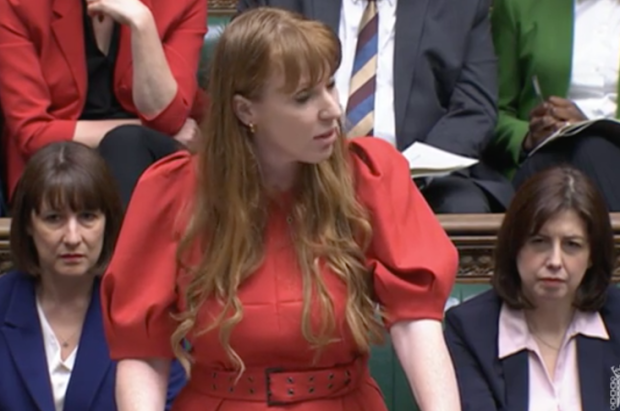The jibes thrown at Boris Johnson over his unhappiness with the Northern Ireland protocol — based on the obvious observation that he was the one who signed it — have been based on the assumption that he is either a liar or a fool. A liar because he knew full well what he was signing up to, or a fool for not knowing what he was agreeing to.
Does anyone think that officials told him that the protocol would prevent Northern Ireland having access to some cancer drugs? Or guide dogs being unable to move between GB and NI? Keir Starmer has repeated the jibe about Johnson. A further version is that Johnson did not care if Northern Ireland paid the price so long as the UK left the EU.
There is another view, rarely heard: that by the time Johnson had become PM, the pass on the protocol had already been sold — almost certainly as far back as December 2017 in the joint report which has legal effect. With little credible leverage on the EU, he had only a few cards to play and he played them. Unlike the original backstop, Johnson put consent at the heart of the deal, addressing, at least in part, the democratic deficit inherent in EU regulations and their application to Northern Ireland without anyone there having a voice on them.
Negotiating the inclusion of the consent article means that the Northern Ireland Assembly can vote on the continuation of the trade provisions in 2024. This, in turn, means that the European Commission will have to keep Northern Irish public opinion onside as they applied the protocol.
Despite the powers available to the Commission, they, like governments everywhere, now have to act with the democratic sword of Damocles hanging over them. Ignore the interests of Northern Ireland by insisting on heavy-handed enforcement and they risk the Assembly withdrawing consent to its continued application. The Commission would surely want to avoid such a humiliation and would be sensible enough to act proportionately. Besides, the protocol has plenty of language that can be used to provide the case for light enforcement. There is, fundamentally, a commitment to ‘upholding the Belfast Agreement in all its parts’ — not only across the Irish border but the Irish Sea as well. There can be no cherry-picking of the Belfast Agreement.
It became apparent quite quickly that the Commission had little interest in being practical or respecting the valid interests of the people of Northern Ireland. The protocol was not simply a means of avoiding a hard border. Instead, it continued to be a means both of keeping the UK tied into the EU regulatory orbit and but also of testing the UK’s good faith. Only strict compliance to the Commission’s reading of the protocol would suffice.
The idea that the consent vote had any relevance to the Commission’s approach and language was dismissed from the start. The protocol, as written and agreed, was permanent and unalterable. Now this position is not at all in line with the protocol. Maros Sefcovic, the Commission vice-president, has a constant refrain that ‘there is no alternative to the protocol’. If that is so, then consent is meaningless. And if consent is meaningless then the democratic legitimacy provided by consent is invalidated — and with it the legitimacy of the protocol itself.
Did Johnson misread the text of the protocol? Probably, but not because he is a fool: it reads one way and delivers in another. That’s how the EU functions in almost all spheres. Did he do all he could to correct it and incentivise the Commission to aim at a light touch regime? Yes, he did. Getting consent into the protocol was the best that could be done. It should have, and still might, shift the Commission’s approach. Johnson already had Article 16 — a unilateral trigger for suspending parts of the protocol — as well as the safeguard of the 2024 vote that he negotiated, which could actually remove the trade element of the protocol. Any post-2024 replacement to the protocol would have to conform to the Belfast Agreement alone, rather than the wider aims set out in Article 1 of the protocol.
The latest attempt to sell the UK a Swiss-style deal on plant and animal goods may be a sign that the Commission is waking up to the unsustainability of the protocol — while also attempting to answer this problem with another shot at keeping the UK in its regulatory orbit. When this fails, as surely it will, what can they propose?
The best hope for achieving successful reform lies in the protocol itself: UK unilateral action under Article 16 and the effect of the Article 18 consent clause. Better for the Commission to wake up now to the risk these pose and make the concessions that are required. If it gambles on the 2024 vote then it risks finding itself negotiating a new protocol with the UK against the sole criteria of applicability with the Belfast Agreement — criteria that the Commission must know includes clear commitments to support relationships across the Irish Sea as well as on the island of Ireland. The question, therefore, may not be so much whether Johnson knew what he signed, as whether the Commission did.
Got something to add? Join the discussion and comment below.
Get 10 issues for just $10
Subscribe to The Spectator Australia today for the next 10 magazine issues, plus full online access, for just $10.


















Comments
Don't miss out
Join the conversation with other Spectator Australia readers. Subscribe to leave a comment.
SUBSCRIBEAlready a subscriber? Log in